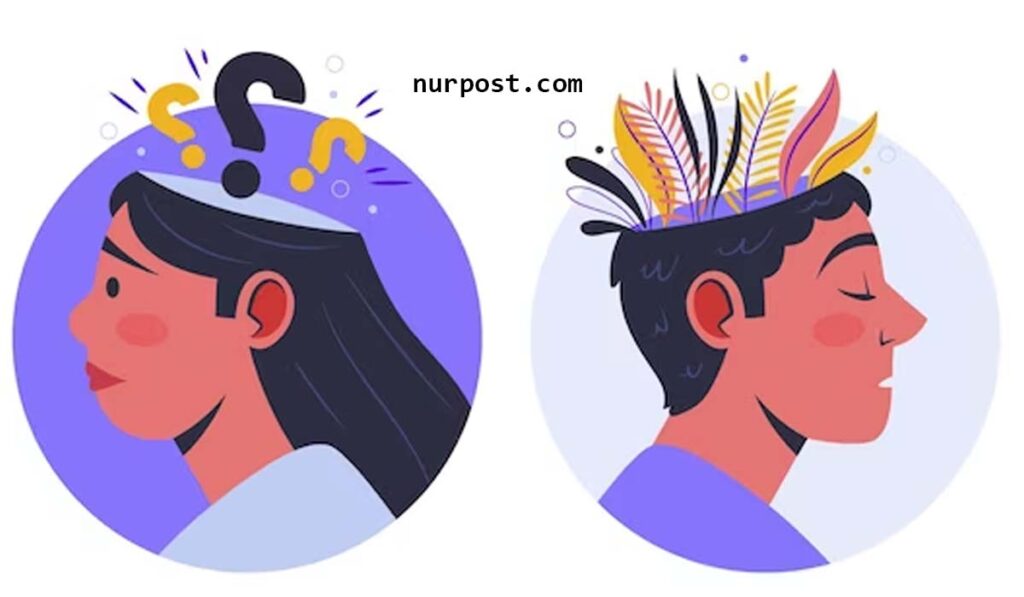Why My Mental Health Is Declining In today’s fast-paced world, the subject of mental health has taken center stage. As we become increasingly aware of the importance of mental well-being, many individuals find themselves grappling with the challenges of maintaining sound mental health.
Why My Mental Health Is Declining
Among them, I too have experienced a gradual decline in my mental well-being. In this article, I aim to share my personal journey, acknowledging the various factors that have contributed to my mental health decline.
By doing so, I hope to shed light on the intricacies of this complex issue and encourage others to prioritize their mental well-being.
The Modern Lifestyle
The demands of modern life are relentless, often leading to chronic stress and anxiety. The constant pressure to succeed in various aspects, such as work, relationships, and personal goals, can leave us feeling overwhelmed and burnt out.
In my case, the competitive nature of my career, coupled with the incessant need to stay connected through technology, has contributed significantly to my declining mental health. The continuous exposure to a barrage of information and social media’s highlight reel has left me feeling inadequate and anxious, constantly comparing myself to others.
The Pandemic’s Impact
The outbreak of a global pandemic further exacerbated my mental health challenges. Isolation, uncertainty, and fear became the new norms.
The sudden disruption of routines and separation from loved ones left me feeling isolated and emotionally drained. Coping with the uncertainties of the pandemic while trying to maintain some semblance of normalcy was a constant battle, and I often found myself struggling to adapt to the ever-changing circumstances.
Neglecting Self-Care
Amidst the chaos of life, I realized that I had unintentionally neglected self-care. Engrossed in my daily responsibilities.
I rarely took time for activities that brought me joy or relaxation. Sleep patterns suffered, healthy eating habits waned, and exercise became an afterthought. As a result, my mental health took a significant hit.
I came to understand that self-care is not an indulgence but an essential component of maintaining mental well-being.
Unresolved Past Traumas
My declining mental health also brought to light unresolved past traumas. Unprocessed emotions from the past can resurface during times of stress and exacerbate existing mental health struggles.
Seeking therapy and professional support has been crucial in addressing these traumas and working towards healing and growth.
Breaking the Stigma
Seeking help for mental health concerns can be a daunting task, primarily due to the stigma that still surrounds mental health in many societies.
I too felt hesitant to reach out for support, fearing judgment or misunderstanding. However, it is essential to break the stigma and recognize that seeking help is a sign of strength, not weakness.
Therapy, counseling, or talking to a supportive friend or family member can make a world of difference in understanding and managing mental health challenges.
Why My Mental Health Is Declining
In acknowledging the various factors contributing to my declining mental health, I have taken the first step towards healing and growth.
It is essential to recognize that mental health struggles are not a sign of failure but a natural response to life’s challenges. By sharing my story, I hope to encourage open conversations about mental health and foster empathy and understanding among individuals facing similar battles.

Prioritizing mental well-being should not be viewed as a luxury but as an essential aspect of leading a fulfilling life. Seeking support, practicing self-care, and taking steps towards breaking the stigma can help pave the way to a brighter and healthier future.
Remember, you are not alone in your struggles, and there is strength in reaching out for help and support. Together, we can embrace our vulnerabilities and grow stronger as individuals and as a community.
Why My Mental Health Is Declining
In an era where life’s pace has accelerated, and the weight of daily responsibilities can become overwhelming, the journey to maintain a healthy mental state can be a treacherous one. As someone who has experienced the gradual decline of their mental well-being.
I feel compelled to share a more intimate and comprehensive account of the factors contributing to my struggles. This article aims to explore the multifaceted nature of my mental health decline, addressing not only the external influences but also the internal battles that have shaped my emotional landscape.
The Impact of Chronic Stress
Chronic stress, often regarded as the silent assassin of mental health, has played a significant role in my decline. Balancing work, personal life, and responsibilities led to a constant state of tension and anxiety.
The perpetual need to meet expectations, coupled with the fear of failure, set the stage for a chronic stress cycle that seemed inescapable. Over time, this stress began to chip away at my resilience, making even minor challenges seem insurmountable.
Isolation and Loneliness
While the modern world is more connected than ever, a paradoxical sense of isolation and loneliness can still creep into our lives.
Despite being surrounded by virtual communities, I found myself yearning for genuine connections and meaningful interactions. The lack of authentic human engagement and the void left by distant relationships contributed to a sense of emptiness and further deepened my mental health struggles.
The Sway of Negative Thoughts
At the heart of my mental health decline were the incessant negative thoughts that occupied my mind. The detrimental habit of self-doubt and self-criticism perpetuated a cycle of negativity, eroding my self-esteem and leaving me vulnerable to anxiety and depression. Untangling this web of negativity has been an arduous journey, demanding a shift in perspective and a conscious effort to cultivate self-compassion.
Escaping the Prison of Perfectionism
As a relentless pursuit of perfection gripped my life, the weight of unrealistic expectations grew heavier. Perfectionism, though often viewed as a positive trait, can create a toxic environment for mental health.
The fear of failure and the relentless need to achieve flawlessness stifled creativity, happiness, and contentment. Embracing imperfection has been a pivotal step in reclaiming my mental well-being and discovering the beauty in life’s impermanent nature.
The Struggle for Balance
Juggling multiple responsibilities without giving myself the time and space to rest led to an imbalanced lifestyle.
Neglecting essential self-care practices, such as sufficient sleep, regular exercise, and engaging in hobbies, left me physically and mentally drained.
Rediscovering the importance of balance and making time for activities that nourished my soul has been transformative, gradually replenishing my depleted energy.
The Power of Seeking Help
Perhaps the most transformative step in my journey to address my declining mental health was acknowledging that seeking professional help was not an admission of defeat but an act of empowerment.
Therapy provided a safe space to explore my emotions, fears, and vulnerabilities without judgment. A skilled therapist equipped me with the tools to navigate life’s challenges with greater resilience and self-awareness.
Conclusion
My mental health decline was a labyrinthine path, composed of numerous interconnected factors. Through self-reflection, acknowledgment, and a commitment to healing, I am gradually piecing together the puzzle of my emotional landscape. By sharing my story, I hope to inspire others to examine their own mental well-being with greater depth and empathy.
Why My Mental Health Is Declining
In our pursuit of success and happiness, we must not lose sight of the profound significance of mental health. Honoring our emotional needs, forging genuine connections, and seeking help when necessary are the cornerstones of resilience and healing.
Remember, we are all navigating life’s ebbs and flows together, and by fostering compassion and understanding, we can create a world that embraces mental health with empathy and acceptance.
